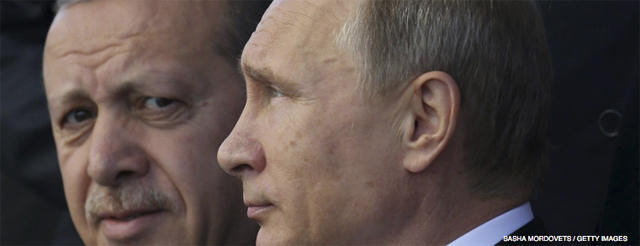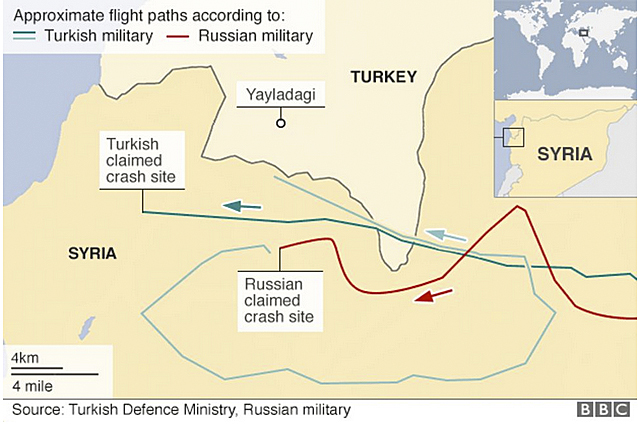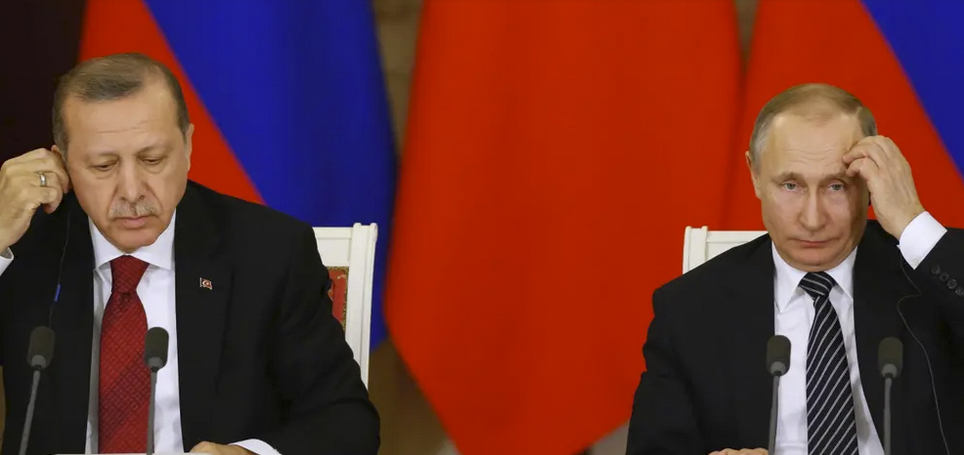
- Articles
Faria: The Turkish-Russian conflict — Converting adversity into opportunity
The downing of a Russian jet by a Turkish F-16 fighter plane is a distracting development for the war on ISIS, as well as an event that could have ominous repercussions for the NATO alliance. Turkey says the Russian plane, a Su-24 aircraft, was shot down while violating Turkish airspace. The Russians deny this and affirm that their jet did not stray from Syrian airspace. Turkey, a member of NATO, is supported by the Western alliance that asserts the Turkish claim that the Russian warplane violated Turkish airspace, flying over a tongue of land stretching into Syria.

What is lost here is the fact that despite political disagreements about the Syrian government, both the Russian Federation and Turkey should be cooperating on the war on terror and the defeat of ISIS; instead they are responding in a historic and adversarial manner that could lead to a major and potentially catastrophic war in Europe involving not just old historic enemies — i.e., Turkey and Russia — but also NATO and the U.S. with calamitous consequences for Europe. Defiant Turkish President Recep Tayyip Erdogan should be reconsidering Turkey’s rules of engagement in alleged Turkish airspace and territorial violations. This is especially true when his country stretches into a hotbed of terrorist activities directed by ISIS. Moreover, both Turkey and Russia are being assailed and destabilized by ISIS and terrorism. Just last month a Russian plane was blown up by Islamic terrorists in Egypt. Russian President Vladimir Putin has a right to be fuming and asking questions. But both the Russian and Turkish presidents should be placing aside centuries-old historical distrust and animosities stemming from old conflicts in the Balkans, the Black Sea, and the Crimea, from the time of Catherine the Great (reigned 1762-1796) and Nicholas I (reigned 1725-1755) — and instead reconsider the present situation and the future of Europe.

It took a great American, Republican President Theodore Roosevelt, to arbitrate and bring an end to the disastrous Russo-Japanese War of 1905 (for which he won a Nobel Peace Prize). It may take another trusted and eminent person to settle this new dispute and avoid war, but it is essential that this situation be settled before it escalates to the benefit of ISIS and the calamity of the rest of the civilized world. The British no longer have Margaret Thatcher, and we no longer have Ronald Reagan. Nicholas Sarkozy no longer rules France. Are President Barack Obama and Secretary of State John Kerry up to the task of sheathing gently the Turkish scimitar while taming the Russian bear?
What needs to be done? Simply, friends and foes must be clearly identified. Alliances must be strengthened. Intelligence must be shared between the two countries, and Russian planes must be allowed to use Turkish airspace with the blessing of NATO!
Written by Dr. Miguel Faria
Miguel A. Faria, M.D. is an associate editor in chief and world affairs editor of Surgical Neurology International and the author of Cuba in Revolution: Escape from a Lost Paradise (2002). His website is HaciendaPublishing.com.
This article may be cited as: Faria MA. The Turkish-Russian conflict — converting adversity into opportunity. Macon Telegraph, December 1, 2015. Available from: https://haciendapublishing.com/faria-the-turkish-russian-conflict–converting-adversity-into-opportunity.
Copyright ©2015 Miguel A. Faria, Jr., M.D.
1 thought on “Faria: The Turkish-Russian conflict — Converting adversity into opportunity”
History 2016 — Regarding Turkey and the Middle East: The attempted coup against Turkish president Recep Tayyip Erdogan in July of 2016 demonstrated the perilous state of affairs in Turkey that persists to this day. Part of the problem has been in the EU, which has acquired a contemptuous attitude impeding Turkeys’ entrance into the EU partnership. Ostensibly the attitude stems ostensibly from turkey’s authoritarian streak in repressing freedom of speech, prosecutions, etc., as if every social democratic measure in place in Europe would work in Turkey. The EU would take notice with the humbling Brexit from Great Britain.
According to the BBC, the Turkey coup attempt was a serious one with over 6000 people detained, particularly army personnel and high-ranking officers: “The sweep included high-ranking soldiers and 2,700 judges… and at least 265 people were killed in clashes as the coup failed.” The big question remains as to who was behind the coup attempt? Turkish President Recep Tayyip Erdogan has implicated the US-based Turkish cleric, Fethullah Gulen being behind the plot, and the plot carried out by his vast number of followers in Turkey and elsewhere. Gulen denies any involvement in the plot. Be that as it may, and I believe Erdogan on this issue, should be to get rid of Mr. Gulen and send him back to Turkey. He is no friend of the United States and yet he hampers our relationship with Turkey which has been a reliable NATO ally until recently.
Instead of investigating the attempted coup and who was responsible, the West have listened to the complaints of Noam Chomsky against Erdogan and the Turkish crackdown. I remember Noam Chomsky stirring criticism among “intellectuals” of the government of Turkey at about the time of the failed coup, condemning Turkey’s government for violating human rights and cracking down on subversive liberal professors. Chomsky is treated with great respect and his work is quoted or published in numerous mass media outlets and academic newspapers and literature. The fact is that his “scholarship” in philosophy and social politics have been greatly exaggerated. He has been praised because of his liberal (progressive-socialist-authoritarian) tendencies, which are in accord with the left-wing mass media and academia. But for those interested in a Jewish perspective about the Middle East, in particular, and politics, in general, I would recommend David Horowitz. He is the most impressive Jewish conservative writer in my opinion, and his biographical and political books, most of which I have read, are the most perspicacious and brilliant.
The EU is an unmitigated disaster vis-a vis Turkey. Turkey, Putin and Erdogan have reached a historic rapprochement, perhaps either because of the Eurasian agreement or because of the EU adversarial attitude to both men and countries. Yes, the EU keeps rebuffing Erdogan and Turkey with their uppity demands and stupid criticisms of both Putin and Erdogan. On the part of Putin, the criticisms and punitive actions are frequently with reason; in the part of Erdogan, frequently not so. The EU leaders are a pusillanimous and despicable bunch of pragmatic cowards. Obama and his State Department were no match for Putin and the latter’s obvious knowledge of geopolitics that Obama lacked. Putin and Erdogan are nationalists and will always do what is in the interest of Russia and Turkey respectively. Trump obviously commiserates with this and will do what is best for the US.
Putin seem to have studied Karl Haushofer (1869 –1946) and his son Albrecht Haushofer (1903 – 1945) for his expansive Eurasian policy and his master of geopolitics. The rift that developed between Obama and Putin was real, as Obama kowtowed to the EU as he did with Islamic and communist leaders, and was very much part of the socialist New World Order that Trump justly abhors. For his part, Putin on June 19, 2016, delivered “a scathing attack of the NWO” and warned Trump that a secret cabal have him “in their crosshairs!” Putin also said that the “NWO is out to get Trump,” but reassuringly told Trump that any enemy of the NWO is a friend of him.